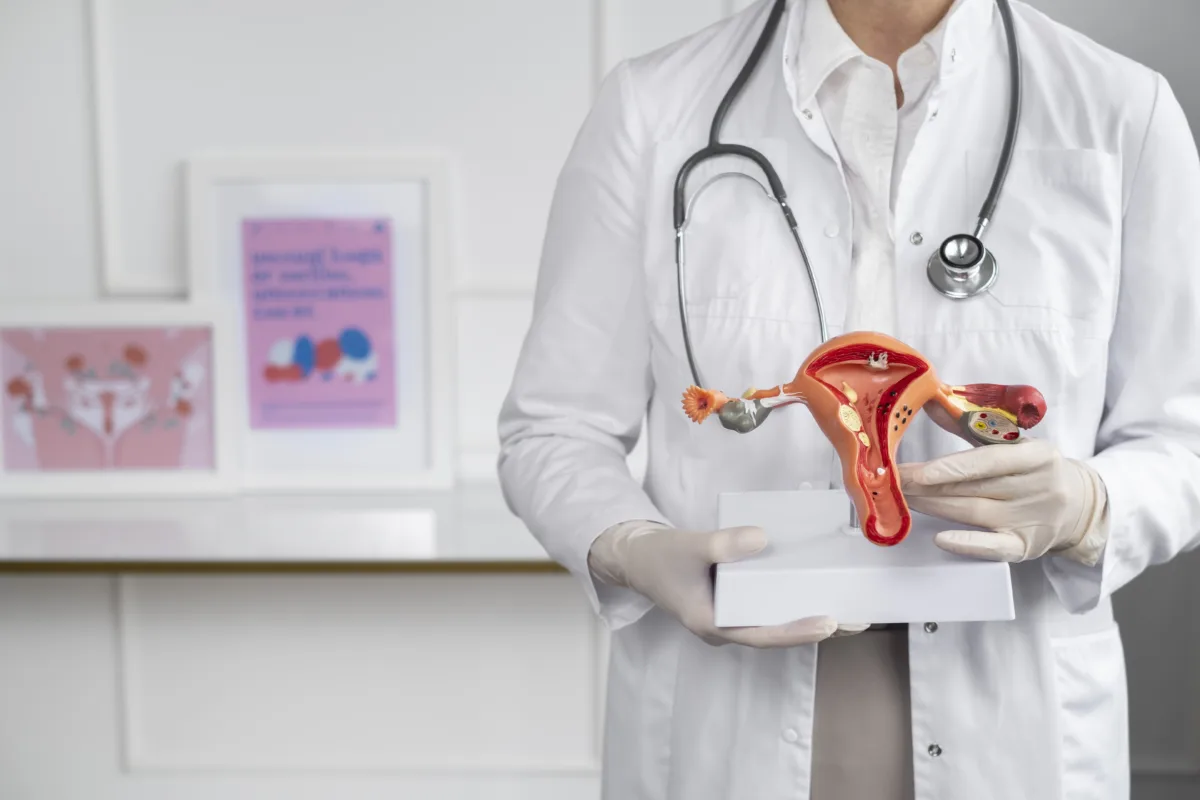We meet a lot of women here at Shifa Al Khobar who come in with questions about PCOD. Some are sure they have it. Others are not sure but have a feeling something is off. Almost everyone has already heard a bunch of “facts” from friends, social media, or relatives.
The problem is, a lot of those “facts” are not facts at all. They’re myths. And myths can do real harm. They make women worry unnecessarily, or worse, they make them ignore symptoms thinking it’s nothing serious.
Let’s sit down and talk about the myths we hear most often. And what’s actually true.
1: If you have PCOD, you can’t get pregnant
We hear this one all the time. The truth? PCOD can make getting pregnant take longer because ovulation can be irregular. But it’s not the end of the road. We’ve had many patients go on to have healthy pregnancies, some without treatment, some with a little help like medication or tracking ovulation. It’s a challenge, not an impossibility.
2: Only overweight women get PCOD
Absolutely not. We’ve seen women of every size and shape with PCOD. Slim women, women with athletic builds, women who are overweight, PCOD doesn’t care about your body type. It’s about hormone imbalance, not body size. While excess weight can make symptoms more intense for some, it’s not the root cause.
3: Losing weight will cure PCOD
It’s true that weight loss can help manage symptoms if insulin resistance is involved. But “cure” is not the right word. PCOD is a hormonal condition. Even if you reach a healthy weight, you may still have it. That’s why treatment focuses on long-term management, not just numbers on a scale.
4: If your periods are regular, you can’t have PCOD
This is a tricky one. Many women with PCOD do have irregular cycles, but not all. We’ve had patients with perfectly regular periods who still had PCOD, showing other symptoms like acne, hair loss, or fertility struggles. A proper diagnosis always needs testing, not just tracking cycles.
5: PCOD and PCOS are the same thing
They sound similar but are not identical. PCOD refers to multiple immature eggs in the ovaries affecting hormone levels. PCOS is a broader syndrome that can also involve metabolic issues and higher risks for certain long-term health problems. Knowing which you have helps guide treatment.
6: Eating sugar causes PCOD
No, eating sweets didn’t “give” you PCOD. The condition develops due to a mix of genetics, hormonal changes, and lifestyle factors. That said, too much sugar can worsen symptoms for some women, especially if insulin resistance is part of the picture. We usually recommend balance rather than complete restriction.
7: You can’t manage PCOD without medicine
Not true. Medicine is helpful for many women, but lifestyle changes often make a big difference. We’ve seen patients improve with better eating habits, regular activity, enough sleep, and stress management. Every case is unique, sometimes medicine is needed, sometimes it’s not.
8: PCOD always causes severe symptoms
Some women have intense symptoms like heavy periods, excess hair growth, or painful cramps. Others have almost no noticeable symptoms. And things can change over time. Just because it’s “mild” now doesn’t mean it will stay that way, which is why regular check-ups are important.
9: Facial hair means PCOD
Facial hair growth can be a sign of PCOD, but it’s not proof. It can also be caused by genetics or other hormonal conditions. That’s why we never diagnose based on one symptom alone.
10: PCOD is rare
Not at all. It’s actually one of the most common hormonal conditions in women of reproductive age. You might be surprised how many women you know have it, they just might not talk about it.
How We Approach PCOD at Shifa Al Khobar
When a woman walks in with concerns about PCOD, we don’t just rush to write a prescription. We start with a conversation. We want to hear your story, your symptoms, your cycle patterns, your family history, even small changes you’ve noticed in your skin or hair.
Then we run the right tests. No guessing, no assumptions.
Once we have a clear picture, we create a plan together. Not a strict, unrealistic list that’s impossible to follow. A plan that fits into your daily life.
That might include:
- Nutrition changes that work with your culture and preferences
- An activity plan you’ll actually enjoy and stick to
- Medicine if it’s truly needed
- Regular follow-ups so we can adjust as your body responds
Our aim is to help you manage PCOD in a way that lets you live your life fully, without letting the condition control you.
And here’s the most important thing. The earlier you address PCOD, the easier it is to manage. If you’re unsure, don’t wait for symptoms to get worse. Talk to us. We’re here to give you clarity, not confusion.
You don’t have to figure this out alone.Contact us to book an appointment.

